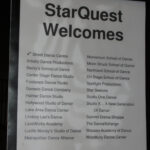“Arabian Dance,” a captivating piece from Tchaikovsky’s timeless ballet, The Nutcracker, holds a depth far beyond its enchanting melody. This instrumental piece, often simply enjoyed for its exotic and mysterious sound, carries a poignant history rooted in personal tragedy and cultural inspiration. Discover the fascinating story behind this iconic movement and its resonance in our modern world.
Unveiling the Origins: A Georgian Lullaby and Tchaikovsky’s Mourning
Contrary to what the name might suggest, the inspiration for “Arabian Dance” doesn’t originate from Arabian folklore. Instead, its melody is borrowed from a traditional Georgian lullaby. Tchaikovsky’s connection to Georgia runs deep; he spent considerable time in Tbilisi, the Georgian capital, composing music for Sleeping Beauty and immersing himself in the region’s rich folk music.
The composition of The Nutcracker itself was born out of personal sorrow. Tragedy struck Tchaikovsky with the untimely death of his sister. Seeking solace in music, he embarked on creating The Nutcracker as a “musical idealization of his childhood,” a nostalgic yearning for happier times spent with his beloved sister. During his time in Georgia, he encountered this mournful yet beautiful Georgian lullaby, a melody mothers would sing to comfort their sick children. This poignant tune resonated deeply with Tchaikovsky’s own grief and found its place within the exotic soundscape of the “Arabian Dance.”
Interestingly, the melody also bears a striking resemblance to the spoken rhythm of an Orthodox funeral rite, further amplifying the piece’s undertones of sorrow and solace. This same haunting melody also caught the ear of Ippolitov-Ivanov, a contemporary of Tchaikovsky, who incorporated it into his own compositions.
Resonance in 2020: A Mother’s Lullaby for a World in Need
Fast forward to 2020, the historical context of “Arabian Dance” takes on a new layer of meaning. In a year marked by global challenges and uncertainty, the piece’s origins as a lullaby for the ill and a lament for loss become profoundly relevant. The world, metaphorically “fallen ill,” could be seen as needing the comforting embrace of a mother’s lullaby, a soothing balm amidst turmoil. This timeless piece, therefore, transcends its historical context and speaks to the universal human experiences of sorrow, comfort, and hope.
A Personal Rendition: Aaron Embry & Brett Farkas’s Collaboration
Musicians Aaron Embry and Brett Farkas have created a unique rendition of “Arabian Dance,” infused with their personal connection to the music. For Brett, The Nutcracker Suite holds a special place as one of his earliest and most cherished musical memories, sparked by a childhood ballet performance. The “Arabian Dance,” with its haunting melody shifting between minor and major keys, always stood out.
Brett’s journey to record this piece began during Christmas, transcribing it by ear and consulting original Russian scores. A chance encounter with Aaron at a music venue led to an impromptu jam session where Aaron effortlessly joined in on the Wurlitzer, knowing the orchestral reduction by heart. This serendipitous moment sparked a collaboration.
Together, Aaron and Brett embarked on a project to record “Arabian Dance” in their own style. They spent time in Ojai, bonding over this meaningful music and crafting a rendition that remains faithful to the original while incorporating their artistic liberties. This recording is not just a musical piece; it’s a testament to their shared passion and a heartfelt offering of “Peace, Health and many Blessings.”
This interpretation of “Arabian Dance” serves as a poignant reminder of the music’s historical depth and its enduring power to resonate with audiences across time. It invites us to listen not just to the exotic sounds, but also to the underlying story of sorrow, solace, and the enduring comfort of a lullaby.

